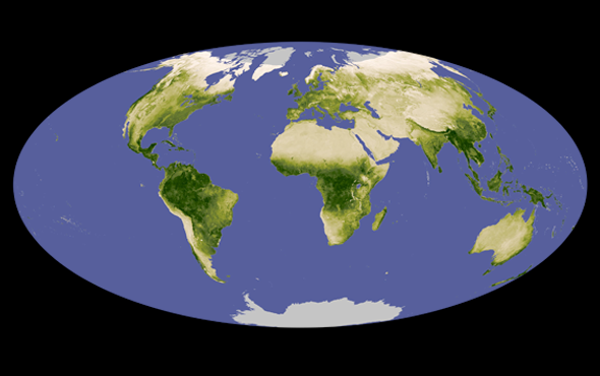THE BALKANS
Actions to reduce poisoning and electrocution from power lines have stabilized the endangered Egyptian Vulture's population in the Balkans. These birds are often killed across their 14-country migration route; only about 50 breeding pairs remain.
BRAZIL
Fossilized dinosaur footprints discovered in southern Brazil in the 1980s don't belong to any known species, new research shows. The desert-dwelling carnivore has been named Farlowichnus rapidus because its footsteps were spaced far apart, suggesting it was a speedy runner.
EUROPE
Ancient Europe's landscape was long believed to be a dense forest. But pollen samples from the interglacial period about 115,000 to 130,000 years ago have now revealed a mixture of grassland and light-woodland biomes, perhaps maintained by large herbivores such as elephants that trampled or fed on smaller trees.
GREENLAND
Glaciers in Greenland have receded twice as fast over the past two decades as they did in the 1900s—from seven or eight meters a year to about 15 annually. Archival images and recent satellite photographs showed the drastic acceleration.
INDONESIA
Attenborough's long-beaked echidna, named for naturalist David Attenborough, was spotted for the first time since 1961 by trail cameras in the Cyclops Mountains. The spiky, egg-laying mammal had been scientifically recorded only once before; its timid and nocturnal nature makes it hard to find.
IVORY COAST
Researchers saw chimpanzees in Taï National Park climbing to higher ground to spy on neighboring rivals, mirroring a millennia-old human military strategy. The chimps also patrolled their borders to listen for enemies, and closer rivals were less likely to enter an adversary's territory.
For more details, visit www.ScientificAmerican.com/feb2024/advances
